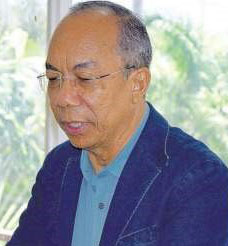(Jamaica Observer) Jamaica’s ability to identify the perpetrators of some of the island’s most heinous crimes will receive a boost shortly when the National DNA Database becomes operational.
The construction and outfitting of the new building, dubbed the “Annex”, at the Institute of Forensic Science and Legal Medicine, popularly called the Forensic Lab, in Mona, St Andrew, is scheduled to be done by the end of July.
Minister of National Security Dr Horace Chang is confident that this will improve the island’s crime-fighting efforts.
During a tour of the lab yesterday, Chang told journalists that the acquisition of the software and associated equipment for the DNA Database is being done at a cost of US$450,000 (approximately J$59 million).
But he noted that even before the roll-out of the database the Forensic Lab had been doing tremendous work in the crime fight.
“The public should know that the kind of forensic activity going on here is extensive, high-quality work and that DNA work is being done. But by getting the national database they can do the analyses much faster and more efficiently,” said Chang.
“The scientific work being done is already giving us significant help in the fight against crime. In fact, at the recent circuit cases in Montego Bay, they had 22 convictions one week and at least five of them depended on the work done by the Forensic Lab.
“And increasingly it is becoming the key element [in solving crime] because of the challenges we face in Jamaica in getting witnesses because the ‘informer fi dead’ culture continues to drive people away from … giving hard evidence,” added Chang.
He noted that for the first half of the year trained detention officers from the Jamaica Constabulary Force (JCF), Independent Commission of Investigations (INDECOM) and the Department of Correctional Service (DCS) submitted a total of 461 DNA samples to the Forensic Lab for investigations.
In addition, JCF and DCS detention officers submitted 476 DNA samples to populate the database.
The Forensic Lab also conducted DNA analyses on 313 cases involving 460 exhibits and found matches in 47 per cent of the cases.
In the meantime, executive director of the Forensic Lab Judith Henry-Mowatt said, with the new building the entity will have technology and personnel to match first-world standards.
“Last year, in particular, we made a significant investment as we bought all the latest instruments. The world, as a gold standard, is using the next generation of genetic analysers … and we bought two,” said Mowatt.
“All the instruments that will automate the (DNA) process is what we are currently purchasing, to arrive this year. All of that is first world and the latest thing on the market, and it’s either here or it is on its way,” added Mowatt.
Among the state-of-the-art equipment being acquired by the Forensic Lab is a Maxwell RSC 48, which will allow it to conduct 48 DNA tests in 30 minutes.
The lab is now using the Maxwell 16, which restricts it to 16 tests in 30 minutes. “So we will be increasing our capacity 200 per cent,” beamed Mowatt.



